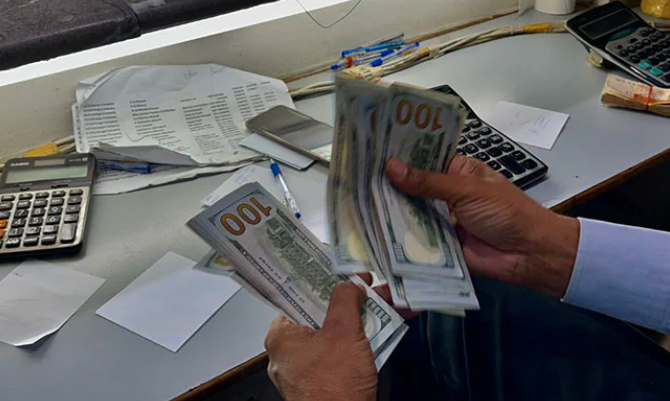 Scan and follow WeChat
Scan and follow WeChat
Pakistan's economy is at risk of collapse as rolling blackouts and a severe foreign exchange shortage make it difficult for businesses to operate and the authorities try to revive an International Monetary Fund bailout to ease a deepening crisis, the Financial Times reported.(Pakistan Maritime Port Information)
Karachi authorities have cut imports to save dwindling foreign currency, and businesses are struggling to survive. The central bank says containers full of imported goods are piling up at Pakistani ports, with buyers unable to get the dollars to pay for them.
Trade bodies for shipping companies and foreign companies have warned that capital controls imposed to protect dwindling foreign exchange reserves are preventing them from repatriating dollars. Factories such as textiles and manufacturing are closing or cutting hours to conserve energy and resources, officials said.
The Pakistani rupee fell 10.6 percent against the dollar at the close of the official trading day, the central bank of Pakistan said Tuesday.
Pakistan's economic crisis is said to have worsened with losses of more than $30 billion. Pakistan's foreign exchange hit a record low of $4.56 billion, only enough to cover three weeks of imports, Geo News reported. For a country that relies heavily on imports, this is a concern. According to the report, the decrease was due to the repayment of a $1 billion commercial loan to two UAE banks.Pakistan has only three weeks' worth of foreign reserves for imports and needs external financing badly.

Pakistan relies heavily on imports to meet its basic food needs, mainly from Ukraine and Russia. The ongoing war has disrupted supply chains, and crop damage from flooding has left the country facing food shortages and sharply higher prices.
The price of essential goods rose in the week ending January 19, 2023, with the Sensitive Price Index (SPI) up 32% year-on-year, according to data from the Pakistan Revenue Authority, according to Pakistani media reports.
Container carriers serving Pakistan's ports are struggling to cope with the severe foreign exchange crisis in an already challenging market environment.
Local industry sources said importers were unable to get delivery orders for goods to be cleared on time, causing a serious bottleneck in the port city of Karachi, including nearby Port Qasim.
"Thousands of containers are stuck at the docks, causing supply chain gridlock and huge backlogs." "Said a shipping agent in Karachi.
Fearing a rapid escalation of the situation, the Pakistan Shipping Agents Association (PSAA) issued a notice to the State Bank of Pakistan and government leaders warning shipping companies represented by them that they would consider suspending overseas services if immediate action was not taken to ease the crisis. "If international trade stops, Pakistan's economic situation will worsen." The association noted.
As pressure mounts on the industry, the Pakistani government has promised temporary relief for importers coming to clear the backlog of containers. "The government has decided to waive demurrage charges (demurrage charges and demurrage charges), which will now be borne by the state Treasury."A spokesman for Pakistan's maritime ministry said in Karachi port.
"About 20,000 containers are estimated to be stranded at the port." Khurram Ijaz, vice president of the Pakistan Federation of Chambers of Commerce and Industry.
Industry sources said the crisis was likely to drive many trading houses into bankruptcy. Trade associations welcomed the proposed waivers, but said shipping interests would need formal notification from port officials before they could begin clearing the clogged cargo.
Pakistan has experienced severe economic setbacks in recent years, but is now at a critical juncture. According to local reports, the country's dollar reserves have fallen below $4.5 billion, the lowest level in eight years. The collapse was rooted in a variety of factors, including political turmoil, natural disasters, soaring inflation rates, high energy prices and foreign debt servicing obligations.
The crisis is closely related to the political and economic turmoil that neighboring Sri Lanka has had to deal with recently, including a shutdown of Colombo's port due to dockworker protests and other disruptions.
Meanwhile, Hapag-Lloyd has issued a trade update stating that its Indian Ocean Service (IO3) between India and Europe will shift its Pakistan affiliate from Port Qasim to Karachi port from February 5.
Source: shipping network only for sharing if there is a disagreement contact deleted!